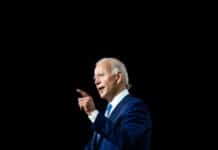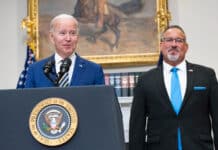With just three days left in the legislative session, the House DFL is voicing their dissatisfaction with Republican proposals on everything from bonding issues to transportation funding. On May 18, Rep. Laurie Halverson slammed Republicans for not acting on the Minnesota DISCLOSE (Democracy is Strengthened by Casting Light on Spending in Elections) Act. The bill was tabled in committee by a party line vote (10-6), all 10 votes against it were by Republicans.
The DISCLOSE ACT is “a constitutional amendment that would reform the state’s campaign finance system by shining a light on the currently unreported dark money spent in elections so Minnesota voters know who was paying to influence their vote.” Had the DISCLOSE Act passed the legislature, it would have been voted on as a statewide referendum.
In the post-Citizens United era, Democrats and progressives alike have sought to make campaign finance reform a key component of their agendas, while Republicans have resisted on the basis that they see money as a form of speech. Rep. Tim Sanders (R-Blaine), Chairman of the House Government Operations and Elections Policy Committee argues the DISCLOSE Act does the following: “This proposal seeks to limit free speech for those who disagree with the DFL and their big-spending special interest friends,”
House Minority Leader, Paul Thissen (DFL – Minneapolis) boldly supported the DISCLOSE Act in a press release, arguing, “The flood of special-interest ‘dark money’ drowns out the voice of ordinary citizens. It makes people less likely to vote and it distorts our public policy. No wonder people feel like the system is rigged against them. We need to put more power back in the hands of voters.”
Halverson points out that there are a plethora of reasons the bill failed to pass, stating, “Over the last two years, special interests and their allies in the legislature have repeatedly blocked any attempt to vote on this legislation.”
Halverson argues that one special interest group is the Minnesota Jobs Coalition, which spent money to elect candidates they found preferential, and were not required to report the amount of money spent on accomplishing that mission. “Legislators need to stop putting special interests ahead of our constituents,” argued Halverson. According to Halverson’s view, and presumably the Democrats who voted for the DISCLOSE ACT in committee, this is reprehensible.
In sessions to come, issues of campaign finance will likely continue to play an important role in the legislature’s discourse. Subscribe to Alpha News to ensure you are up to date all things Minnesota politics.












